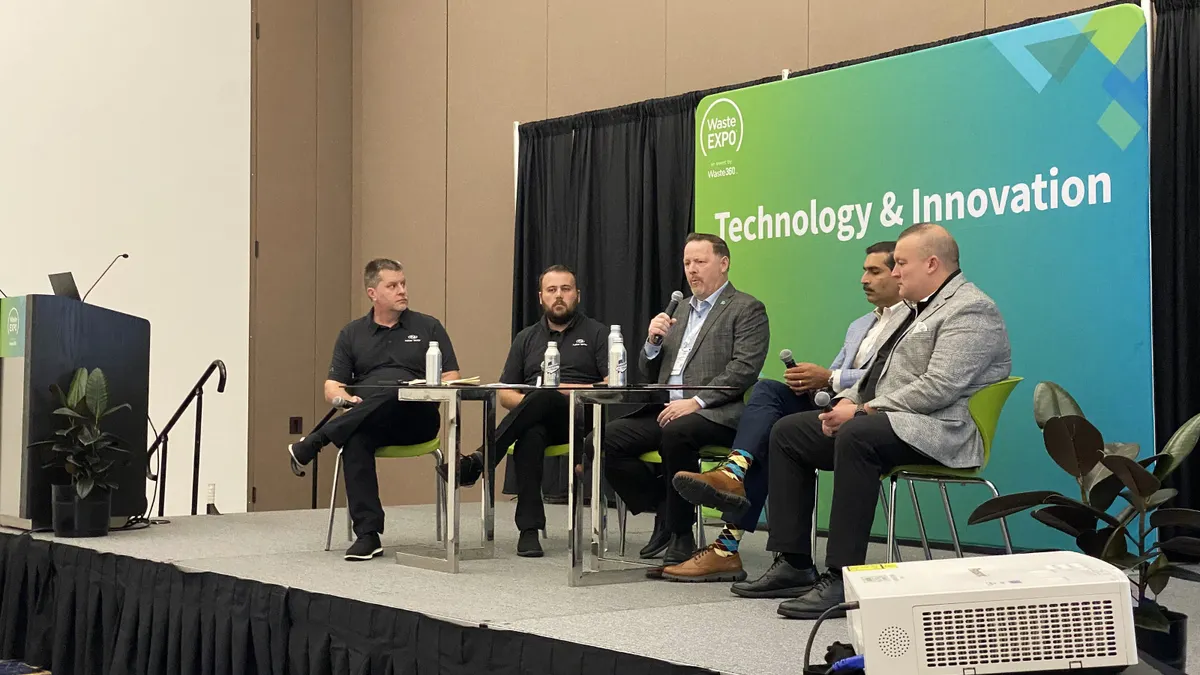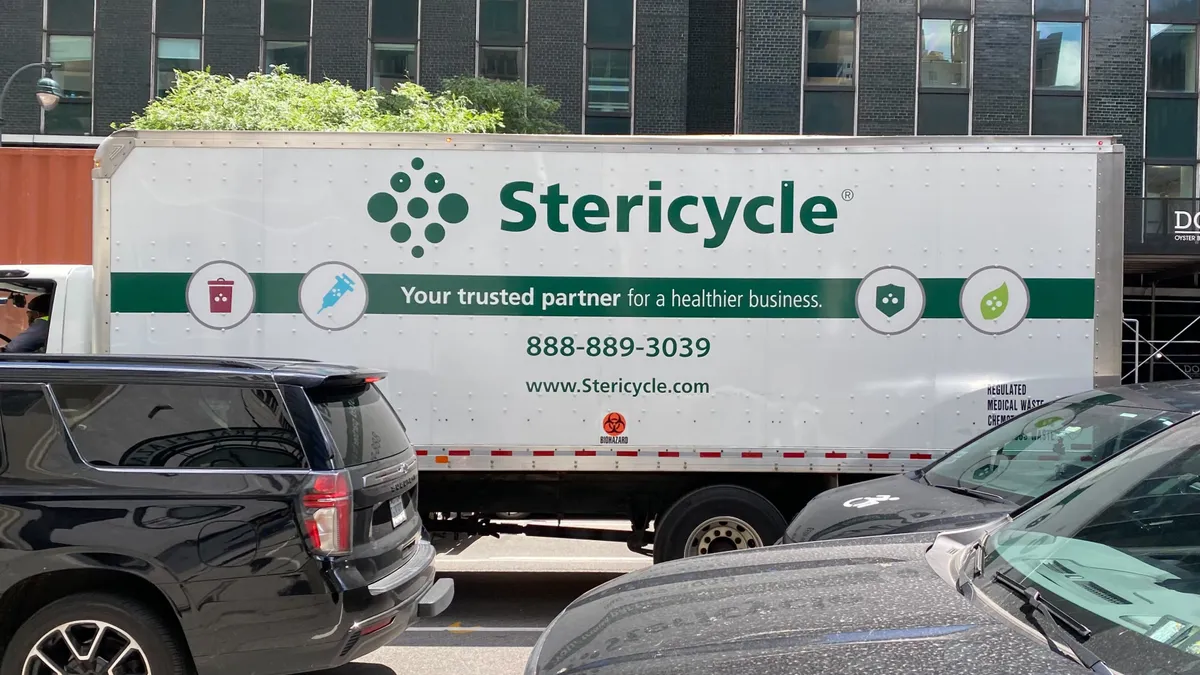Truck manufacturers still see a future for hydrogen-powered refuse vehicles despite the recent dissolution of Hyzon, which ran the first U.S. pilot for such vehicles last year.
Manufacturers think waste and recycling haulers are a natural fit for the technology, given their proven ability in recent years to pivot to new fuel types like compressed natural gas.
"This industry works very well at adapting to infrastructure," Tyler Ohlmansiek, director of e-mobility sales at Mack Trucks, said during a panel at WasteExpo on May 7. "That's a leg up for hydrogen in the waste and recycling space."
Hyzon partnered with manufacturer New Way Trucks to deliver the first hydrogen fuel cell-powered refuse hauling vehicle in 2024, and it had begun receiving orders for the model. Recology, GreenWaste and other waste companies conducted pilots of the truck, and found that it was performing as well as diesel-powered trucks in certain applications.
That early success wasn't enough to keep Hyzon afloat, however. Its board of directors voted to liquidate and dissolve the company in December, and an auction for its assets remains ongoing.
Despite Hyzon's demise, New Way has still received interest in hydrogen fuel cell refuse trucks and is evaluating ways to continue in the space, said Marc de Smidt, senior director of engineering at New Way. That may include partnering with an entity that takes over the defunct company's assets or partnering with another fuel cell manufacturer.
"We're working on getting something out there," de Smidt said.
Other manufacturers are dipping their toe into the space as well, though mostly for heavy-duty applications beyond waste and recycling hauling. Kenworth was set to begin production this year on a hydrogen fuel cell truck jointly developed by Paccar and Toyota, but that's now delayed. Hyundai has been manufacturing a heavy-duty hydrogen fuel cell vehicle for several years, and recently debuted an updated model at the Advanced Clean Transportation Expo in California. Volvo Group and Daimler also plan to bring a hydrogen fuel cell truck to market this decade through a partnership.
Hydrogen fuel cell-powered trucks face a shifting policy landscape, as the Trump administration has attempted to cut funding for a hydrogen research hub program created during the Biden administration. Critics have also attempted to repeal the Advanced Clean Trucks rule, first created by California and later adopted by other states. They say the rule’s timeline to transition manufacturers away from fossil fuel-powered vehicles is aggressive and unrealistic given the availability and performance of alternatives.
Nevertheless, manufacturers are still eager to make hydrogen fuel cell-powered vehicles work, in part because sustainability-minded customers are demanding them, said Mitesh Naik, director of product planning and strategy for Peterbilt Motors, a subsidiary of Paccar.
“Despite what happens with regulations, I know two things. Number one: We'll be ready. ... And number two: There's still a lot of ESG-minded customers,” said Naik. “It's not a matter of if, it's just a matter of when.”
The sector’s adoption of battery-electric vehicles has also been growing, albeit slowly. Last year, 19 new battery-electric refuse vehicles were registered, according to an industry-sponsored report. That number is expected to grow, in part because last year Republic Services ordered 100 electric McNeilus Volterra waste and recycling vehicles from Oshkosh Corp.
Proponents of hydrogen fuel cell-powered vehicles note the technology can be lighter than the battery packs needed for battery electric-powered heavy-duty vehicles. That means hydrogen trucks may be a better drop-in replacement for diesel trucks on more hauling routes.
One of the key challenges to wider hydrogen truck adoption will be fueling infrastructure, panelists said. As fleets evolve, operators will have to decide where and how they deploy permanent hydrogen fueling stations, often working with third-party partners.
In some cases, fleet operators could position a hydrogen fuel tank on their lots. That could be a quicker interim move to transition fleets, especially given the delays with gas and power utility interconnections that have caused setbacks for other fuel types, said Peterbilt’s Naik.
"OEMs can very quickly produce a truck, deliver a truck to a great partner and customer. But oftentimes the infrastructure is the missing item," he said.
Jim Mendoza, director of equipment, procurement and maintenance for Recology, said haulers are looking for a "one-to-one" replacement for diesel-powered trucks, but "the reality is we may not get to one-to-one."
Instead, he envisions a mixed fleet with some hydrogen fuel cell-powered vehicles, some battery-electric and some internal combustion-powered trucks.
Even so, Mendoza said there are potential upsides beyond the emissions savings touted by proponents of hydrogen fuel cell vehicles. He said the trucks could also be a recruitment tool for haulers, noting Recology drivers didn’t go home smelling like exhaust after the hydrogen fuel cell pilot, making the job more pleasant.
"We don't have that influx of drivers anymore. We have to go shop for them and it's very difficult," Mendoza said. "This is maybe a good story for them.”
Disclosure: Informa, which owns a controlling stake in Informa TechTarget, the publisher behind Waste Dive, is also the owner of WasteExpo. Informa has no influence over Waste Dive's coverage.



















